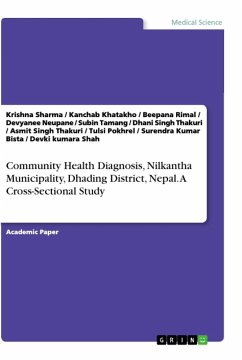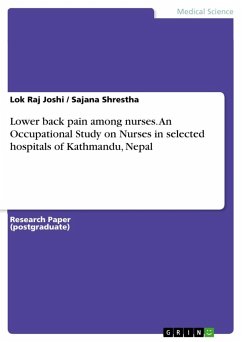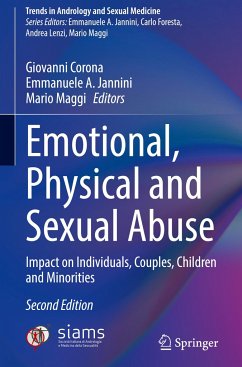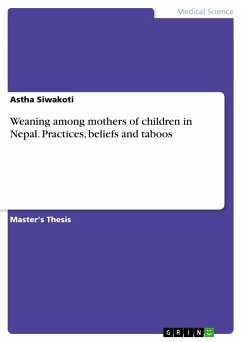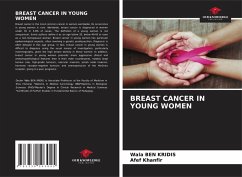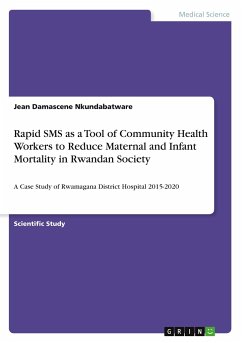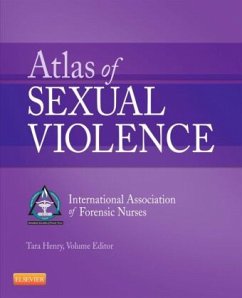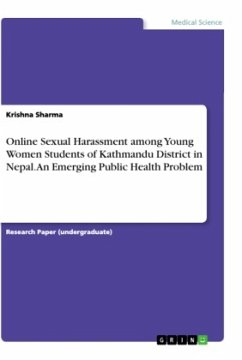
Online Sexual Harassment among Young Women Students of Kathmandu District in Nepal. An Emerging Public Health Problem
Versandkostenfrei!
Versandfertig in 1-2 Wochen
27,95 €
inkl. MwSt.

PAYBACK Punkte
0 °P sammeln!
Research Paper (undergraduate) from the year 2019 in the subject Health - Public Health, , course: Bachelor of Public Health, language: English, abstract: Introduction: Online sexual harassment is a kind of sexual harassment that primarily occurs over the internet and also growing with the development of new technologies in virtual communities. It is a new form of sexual harassment, which is emerging as a public health issue with various health consequences, including mental and emotional health effects. The main objective of the research study was to determine the prevalence of online sexual ...
Research Paper (undergraduate) from the year 2019 in the subject Health - Public Health, , course: Bachelor of Public Health, language: English, abstract: Introduction: Online sexual harassment is a kind of sexual harassment that primarily occurs over the internet and also growing with the development of new technologies in virtual communities. It is a new form of sexual harassment, which is emerging as a public health issue with various health consequences, including mental and emotional health effects. The main objective of the research study was to determine the prevalence of online sexual harassment among young women students (15 to 24 years age group) in Kathmandu District, Nepal.Materials and Methods: A total of 382 young women students of 15 to 24 years age groups from different colleges and (or) universities representing (+2) levels and bachelor levels in equal proportion have participated in this quantitative type of cross-sectional study. A structured questionnaire in both Nepali and English language was designed for a self-administered kind of data collection and composed in six different sections.Result: About 66.5% of respondents reported exposure to online sexual harassment at least once in their lifetime, and most of the respondents (73.2%) were exposed to online sexual harassment multiple times (more than once or twice). About two-thirds (62.8%) of the respondents, among before the age of 18 years, were also exposed to online sexual harassment. The mean age group of online sexual harassment experienced was 18.94±1.79 years. The respondents studying (+2) Level from an urban area, and those who accept an unknown friend request on social media (P=0.000, P=0.011, and P=0.013<0.05 respectively) were more likely to experience frequent online sexual harassment. About 2% of respondents have experienced a high degree of online sexual harassment.Conclusion: The high prevalence rate of online sexual harassment has been detected. Along with the development of new technologies in the virtual communities, young women students of Kathmandu District are becoming more vulnerable, which can unexpectedly common in other places in Nepal. It shows the government needs to develop an effective policy and regulations against online sexual harassment urgently. A new module of Comprehensive Sexuality Education in virtual communities is necessary for an academic setting and would be a useful tool to minimize online sexual harassment.



